David O. Russell

Director • Writer
Birth Name: David Owen Russell
Birth Date: August 20, 1958
Age: 66 years old
Birth Place: New York, New York
David O. Russell quickly developed a reputation for being one of the most original and forward-looking directors working in Hollywood. The splash he made with his debut, "Spanking the Monkey" (1994), opened the doors wide for Russell, who became one of those rare talents to gain studio backing for highly-personal and risky films that typically generated rave reviews, but little profit.
After the toned-down sophomore effort "Flirting with Disaster" (1996), he scored a large-scale success with "Three Kings" (1999), which thrust Russell into the top tier of working directors. Russell maintained a reputation for bringing the most taboo subjects into a fresh and hilarious light, while earning considerable awards attention for "The Fighter" (2010) and "Silver Linings Playbook" (2012), making him one of Hollywood's more creatively risk-taking directors.
Born on Aug. 20, 1958 in New York, David Russell was raised by father Bernard, a sales executive at Simon & Schuster, and Maria, a homemaker and local political activist. Though the family lived in San Francisco, CA for three years, they eventually re-settled on the East Coast in Larchmont, NY.
Passionate about literature, Russell made his way to Amherst College in Massachusetts, where he studied English with writer Robert Stone, and religion with Professor Robert Thurman, father of actress Uma Thurman. He was eventually pulled into the political activism of the early 1980s and spent four months teaching English in Nicaragua. Though eventually disillusioned by both President Ronald Reagan and the leftist Sandinistas, Russell came away from the experience with a better understanding of Third World nations, which later helped drive "Three Kings."
After his time in Nicaragua, Russell moved to Boston, MA, where he worked as a literacy teacher while writing screenplays at night, then had a sojourn as a labor organizer in Maine. Though actively involved in political activism, Russell felt the pull to do something else with his life.
Ever the itinerant, Russell moved to Washington, DC, where he was a production assistant on "Smithsonian World" (1984) and worked for the Robert F. Kennedy Foundation. But despite his variety of odd jobs that seemed to indicate a lack of direction, Russell wanted to make his own films.
Influenced by the heady films of the 1970s - particularly "Chinatown" (1974) and "Dog Day Afternoon" (1975) - Russell directed his first short, "Boston to Panama" (1985), a documentary that looked at the lives of immigrant workers, which was inspired by his working with labor groups in Boston. With filmmaking beginning to consume his interests, Russell embarked on his first fictional film, "Bingo Inferno" (1987), a comedy short that was shown at the 1987 Sundance Film Festival. He built on that with his third short film, "Hairway to the Stars" (1991), an award-winning comedy about the bizarre fantasies of an old woman getting her hair done, that earned festival spots at Sundance, Seattle and London.
Off the success of his short film career, Russell was able to secure $80,000 in private funding, as well as grants from the New York Council of the Arts and the National Endowment for the Arts, to make his first feature, "Spanking the Monkey" (1994). A dark, tragicomic tale about a young college student (Jeremy Davies) home for the summer to take care of his ailing mother (Alberta Watson) while his father (Benjamin Hendrickson) is away on business, "Spanking the Monkey" explored the taboo of mother-son incest, while expanding on the themes of sexual frustration and breaking free of one's roots. Though controversial - many top actresses refused to even read the script, let alone play the part of the mother, though Faye Dunaway entertained the idea - critics were nonetheless pleasantly surprised by the disturbing comedy and strong performances. At the 1994 Sundance Film Festival, the film won the Audience Award for Favorite Dramatic Film.
Though it was released in only a few dozen art house theaters, "Spanking the Monkey" established Russell as a bona fide talent and a director worthy of attention.
For his next film, "Flirting with Disaster" (1996), Russell stepped away from social taboos to instead train his razor-sharp satirical wit on the absurdities of family life, particularly one that is wildly dysfunctional. Mel Coplin (Ben Stiller) is a family man with a beautiful, loving wife (Patricia Arquette) and a baby son who nonetheless feels that his life is incomplete. But when Mel goes on a search for his biological parents with the help of a leggy psychology student (Tea Leoni) wanting to videotape the encounter for her research, he learns that maybe certain questions should remain unanswered. Russell was finally given a decent-sized budget and a few stars with which to work, giving him a wider canvas. The results were evident in the more professional look and stellar performances from Lily Tomlin, Alan Alda and Mary Tyler Moore. Though not a box office smash by any stretch of the imagination, "Flirting" faired well on the art house circuit after screening on closing night of the 1996 Cannes Film Festival.
Perhaps the title of his second film would have been more appropriate for his third - at least in terms of what happened while making it. For "Three Kings" (1999), his first large scale Hollywood feature with a bloated budget and A-list stars, Russell developed a reputation for being controversial outside of what he showed onscreen. Attracted by a script from the Warner Bros. shelves about a heist taking place during the Gulf War, Russell began talking to veterans from the war and eventually rewrote John Ridley's story to tell the darkly comic tale of four soldiers (George Clooney, Mark Wahlberg, Ice Cube and Spike Jonze) tracking down a cache of gold bullion stolen by Saddam Hussein, only to have their plan go disastrously awry. Ultimately, the four soldiers are drawn into the plight of civilians who were slaughtered after expecting American support in an uprising against Saddam. While it turned out to be a finely crafted film, even earning Russell a Best Screenplay nod from the Writers Guild of America, the road making "Three Kings" was more arduous than the Highway of Death.
After battling the studios to keep Clooney onboard - then still primarily a television actor and film star on the rise - Russell managed to get into fisticuffs with his famously amiable star. Already under stress making a big budget movie, Russell had taken to verbally - and occasionally physically - abusing his crew, which rubbed Clooney the wrong way. The actor continually stuck up for the crew against the director's incessant tirades. One incident involving the apparent physical abuse of an extra - Russell later claimed he was demonstrating to another actor how to properly throw him down - caused Clooney to confront Russell, who in turn confronted the actor by cursing him out and challenging him to a fight. Clooney took him up on the offer and managed to get Russell into a headlock before the scuffle was broken up. Though the on-set dust-up was kept under wraps, it inevitably leaked to the media, causing both parties to soft-peddle the incident, though Clooney managed to keep the gossip alive whenever asked about it in interviews years later.
If Russell's reputation for being combative was born on "Three Kings," it most definitely became legend with his next project, "I [Heart] Huckabees" (2004), a dark screwball comedy about a pair of existential detectives (Lily Tomlin and Dustin Hoffman) investigating the life of a down-and-out activist (Jason Schwartzman) battling a golden boy executive (Jude Law) who is thwarting his environmental initiatives while he struggles to make sense of his place in the universe. A bizarre, but funny amalgam of existential philosophy, nihilist poetry and cinematic farce, "I [Heart] Huckabees" could only have been sprung from Russell's fertile, esoteric imagination. The film did, however, fall far short of the financial success of "Three Kings," though in terms of on-set controversy, "Huckabees" surpassed it. Before filming began, Jude Law committed to a film directed by Christopher Nolan after agreeing to do "Huckabees," causing Russell to accost Nolan at a party. Law subsequently left Nolan's project. Then in footage leaked to the Internet, Russell was seen verbally berating Lily Tomlin, calling her a variety of names particularly offensive to women, while violently clearing off a desk of props and kicking a stack of papers. Tomlin later remarked that there were no hard feelings. Nonetheless, Russell's reputation was sealed.
Meanwhile, Russell moved on to direct the surprisingly triumphant and heartfelt biopic, "The Fighter" (2010), which chronicled boxer "Irish" Micky Ward (Mark Wahlberg), who rose from working-class Lowell, MA to become a junior welterweight champion in an effort to redeem his fallen half-brother (Christian Bale). Though the film offered little that was new to the genre, critics heaped praise on Bale and Melissa Leo, both of whom delivered Oscar-winning performances. Russell also received his share of accolades, including Golden Globe and Academy Award nominations for Best Director. From there, Russell went on to write and direct "Silver Linings Playbook" (2012), an off-beat romantic comedy about a man with bipolar disorder (Bradley Cooper) who is released from a mental health facility and later meets an equally damaged young woman (Jennifer Lawrence), forming an oddball friendship while being forced to deal with his father's (Robert De Niro) obsession with the Philadelphia Eagles. Once again, Russell was the recipient of widespread critical acclaim based in part on his ability to walk the tightrope between character drama and offbeat humor. Both the film and its director were contenders during awards season, with Russell starting things off right with Indie Spirit Award nominations for Best Director and Best Screenplay, a Golden Globe nod for Best Screenplay, and Oscar nominations for Best Director, Picture and Adapted Screenplay.
Credits

AmsterdamStream

AmsterdamStream

AmsterdamStream

Joy Interview Special

Accidental Love

JoyStream

JoyStream

JoyStream

Mad Men: Extras
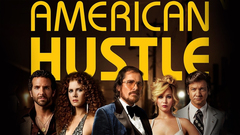
American HustleStream

American HustleStream

Silver Linings Playbook: The Los Angeles Times Envelope Screening Series

CBS This Morning: Saturday
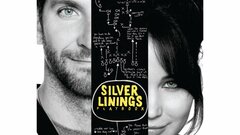
Silver Linings PlaybookStream

Silver Linings PlaybookStream
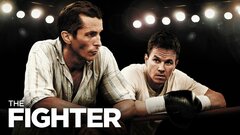
The FighterStream

Outer Space Astronauts

Gossip GirlStream

Tavis Smiley
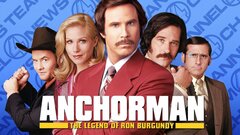
Anchorman: The Legend of Ron BurgundyStream
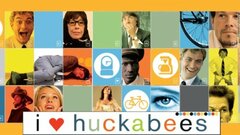
I Heart HuckabeesStream

I Heart HuckabeesStream

I Heart HuckabeesStream
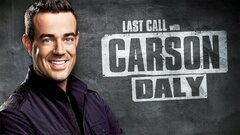
Last Call With Carson Daly

The Slaughter Rule
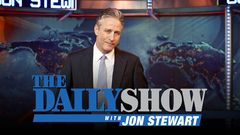
The Daily Show With Jon StewartStream
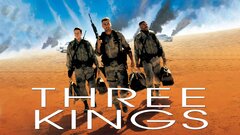
Three KingsStream

Three KingsStream

Raw Footage

Flirting With Disaster

Flirting With Disaster

Spanking the Monkey

Spanking the Monkey

Spanking the Monkey
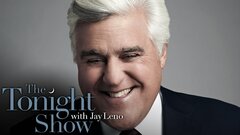
The Tonight Show With Jay Leno
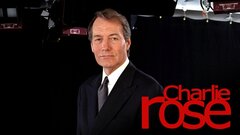
Charlie RoseStream











































